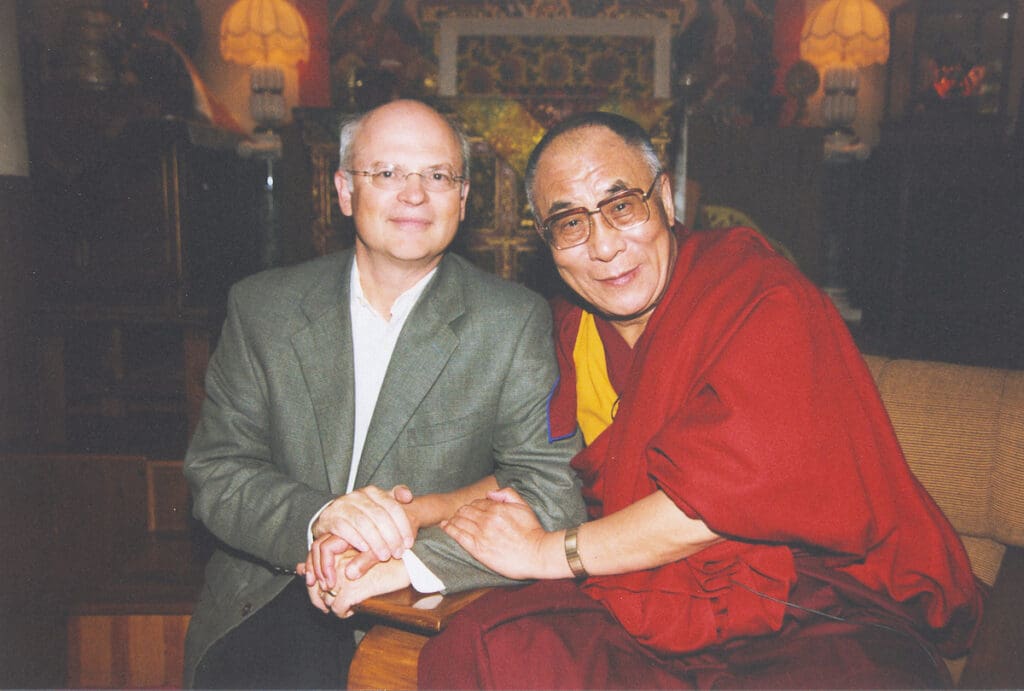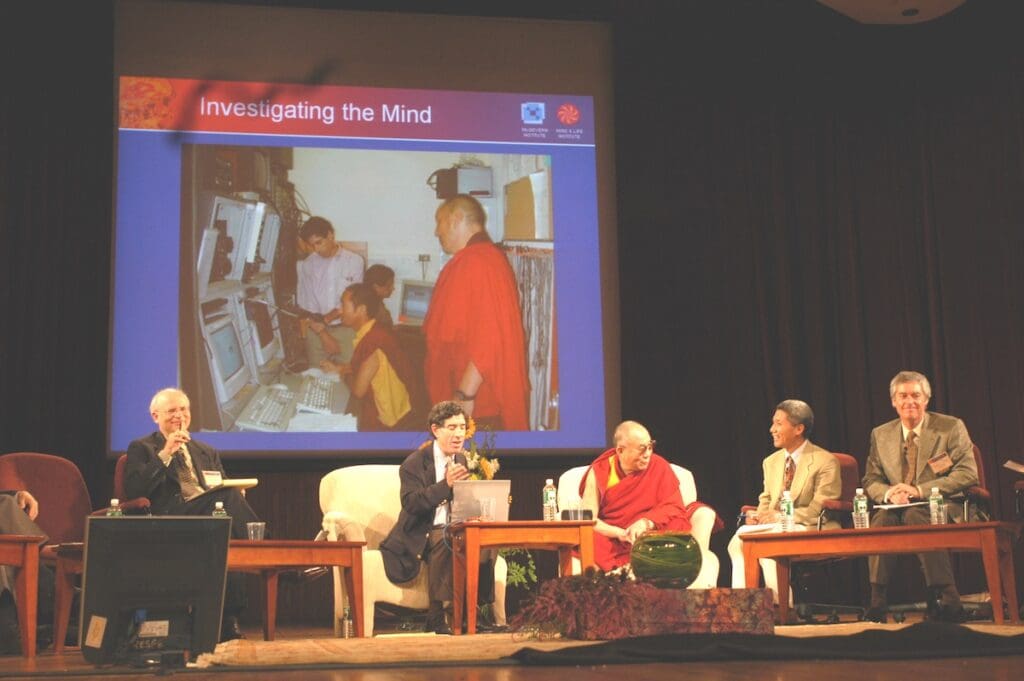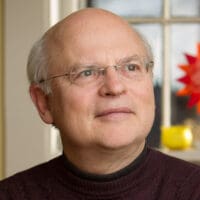
There are those who draw a line between the faith-based world of spirituality and the empirical nature of science. Not so for Arthur Zajonc. The former Mind & Life President (2012-2015) has spent a lifetime nurturing dialogue and understanding between the two.
“It’s important to me that science and spirituality meet each other, that they co-exist,” says Arthur. In Mind & Life, he found a professional home and community where he could explore the nexus of science, morality, spirituality, service to humanity—and much more.
“As we take stock of Mind & Life’s 35-year legacy, it’s with the deepest appreciation for Arthur, and his profound contributions to our mission over many years,” said Mind & Life President Susan Bauer-Wu. “Arthur is a true visionary who took seriously the Dalai Lama’s urging that Mind & Life advance inquiry into educating youth holistically. As a leader, he has never shied away from encouraging each of us to live into our capacity to love and embrace our shared humanity.”
A physicist, university professor, educational pioneer, and the author of eight books, Arthur traces his first involvement with the Mind & Life Dialogues with the Dalai Lama to 1997. As scientific coordinator of MLVI Dialogue on The New Physics and Cosmology, he set the stage for a rich exploration of the implications of new advances in physics for our understanding of space, time, and the evolution of the universe. He later co-authored a book by that name.
Five years later, he organized MLX Dialogue on The Nature of Matter, The Nature of Life, and in 2003, helped to plan and moderate the first public Mind & Life Dialogue (XI) on Exchanges Between Buddhism and the Behavioral Sciences on How the Mind Works. The proceedings were captured in The Dalai Lama at MIT, which he co-authored with science historian Anne Harrington.

Having embraced contemplative practice in his early 20s, Arthur knew first-hand the benefits of meditation for the individual and by extension, for society. “Meditation is a way of knowing, a way of feeling calm and coming to insights and understandings,” he says. Mind & Life was a place for the contemplative and the scientist to explore the convergence of the two, and the fundamental nature of our interconnection.
Arthur describes with great fondness how his relationship with the Dalai Lama grew over time and how the two, one a Buddhist, the other a Christian, found deep resonance in the ‘search for truth’—whether probing the nature of reality and the mind, the ethical dimensions of scientific research, or how to educate the ‘whole’ young person: body, mind, and spirit.
The Dalai Lama invited and encouraged a rich conversation between contemplative wisdom and science, says Arthur, stemming from the Buddhist belief that the root cause of suffering is ignorance. “The path to liberation requires knowledge,” he adds, “with the Buddha admonishing his disciples to test everything they said, to test what’s real.”
Arthur points to many ineffable moments when the merging of extraordinary people and ideas through Mind & Life convenings inspired new insights. “Reality is born of relationships,” he says, pointing to the joy and mutuality that emerged through the Dialogues. “You could almost feel a current building up during these exchanges,” he adds, through the rich interplay of ideas across disciplines, and a collective commitment to the principle of emergence.
As for today, Arthur is at work on his ninth book, Beyond Materialism. “The world is not material; it’s more like pure thought,” he shares. “It is manifest in us and our mode of consciousness.”
While a scientist by training, seeking to understand—and lean into—the human experience of love and connection have been core themes at the heart of Arthur’s professional journey over six decades. “What about the joy and the love I experience? What about the experience I have with my eyes closed in meditation?” he asks. “These, too, should be treated scientifically without reducing them to materialism.”

Arthur Zajonc, PhD
Mind & Life Institute

